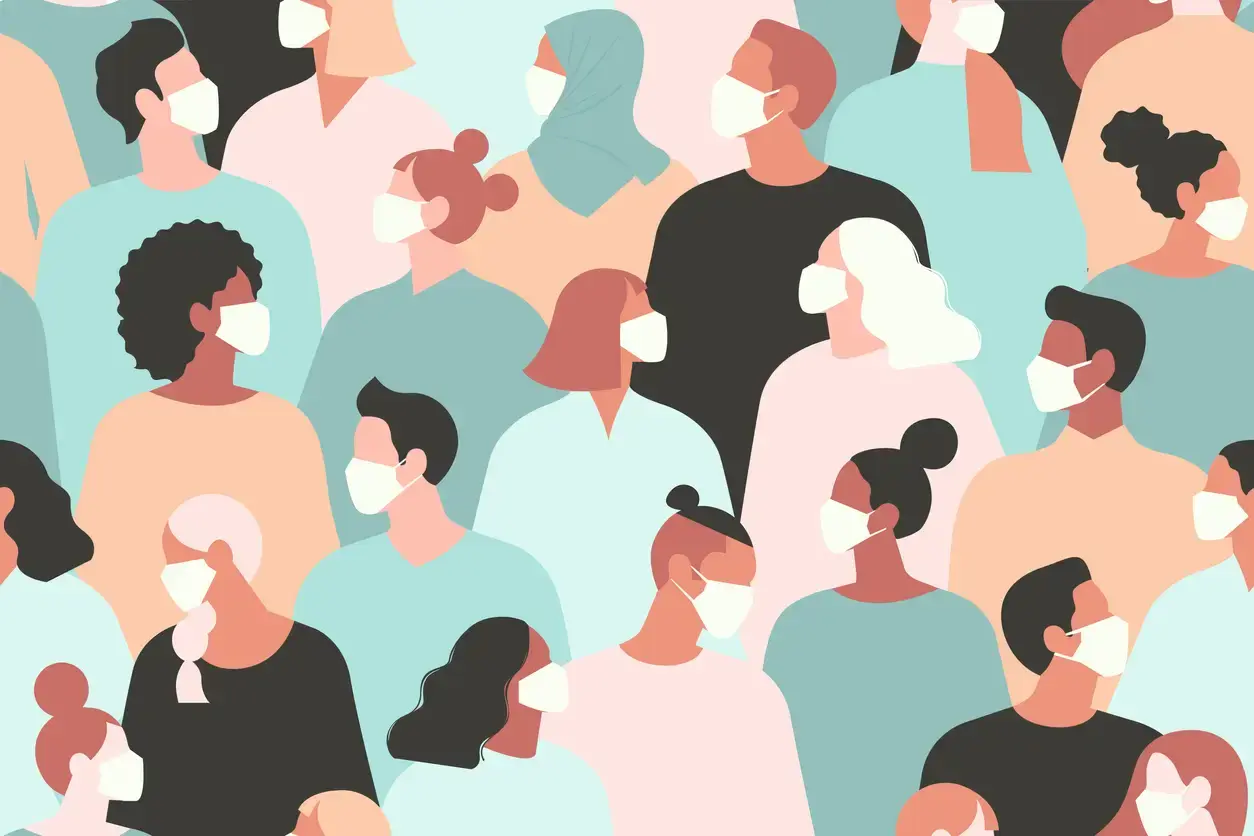Is Humanity the Best Investment? A Clue from Covid
5 min read
I believe that socially conscious investments are the only kinds of investments worth making. And yet, when it comes to ESG (Environmental, Social, Governance) investing, I also believe that many investment managers' views on companies are too restricted. They can take a narrow approach to assessing companies based only on metrics that relate to climate change, sustainability, diversity and corporate governance - traditional ESG measures. Companies that provide access to essential products or services that don't fall within typical sustainable development or social justice realms are rarely considered. Companies with a high carbon footprint or inadequate corporate governance or which manufacture sin products, are often either excluded outright or automatically assigned reduced weights in a typical socially responsible portfolio. I believe in a broader approach, one that allows for such shortcomings in traditional ESG areas to be measured against a company's overall positive impact on humanity according to a wider range of considerations. A more comprehensive and quantitative research process could weigh a company's flaws against its significant contributions to other essential areas of human betterment for a net positive or negative effect that can lead to a more accurate understanding of a company's value to society at large.
Oftentimes companies that offer access to essential products or services for humanity, such as food, clean water, sanitation products, communications networks, and healthcare services aren't mentioned or considered for their positive contributions. Yet, research has shown that annually about 9 million people die from starvation (1), and more than 1.6 million people die from unsafe water, sanitation and poor hygiene (2). It is clear to me that many more would have died if not for the positive contributions of these companies.
In order for us to better appreciate the essential nature of these corporate contributions, let us take a look at how these services and products have affected our lives during the coronavirus pandemic. The COVID-19 pandemic is considered by many to be the most challenging crisis our global community has faced since World War II. At the time of this writing, the virus has infected about 106 million people and killed 2 million people worldwide (3). As the pandemic continues to affect millions of people worldwide, health officials around the world are advising people to wash their hands along with other safety measures. Consequently, clean water and sanitation products such as soap have become essential to maintain hand hygiene, which is critical for reducing transmission of communicable diseases such as COVID-19.
When travel restrictions were imposed together with social distancing and quarantine measures, millions of people lost human connection. From this perspective, communication devices and internet access have assumed important roles as they enable communications between family members from afar. Thus, these technologies arguably help to alleviate loneliness and depression, mitigating the deleterious effects of social isolation. In addition, the abrupt closure of many offices and workplaces introduced a remote work environment for many employees. The ability to transition to remote work has likely saved millions of jobs and we have advances in communications technology to thank for that.
As the COVID-19 pandemic spreads and evolves across the globe, the pharmaceutical industry, where companies have been racing to develop vaccines, has taken center stage. The rollout of the coronavirus vaccination program is what we all hope will be the beginning of the end for the pandemic, with its potential to save millions of lives. In addition, according to the report by the Eurasia Group, global equitable access to COVID-19 vaccines is estimated to generate more than $460 Billion in economic benefits by 2025 (4).
While companies involved in the production of food, clean water, sanitation products, communications tools and pharmaceuticals may not outright fit in with the traditional definition and principles of social justice or ESG, I believe they must still be evaluated and considered with equal importance along with other traditionally "green" companies due to the essential services or wares that they provide. I think the very foundation of civilization today depends on the constant operation and innovation of these companies. The viability of our civilization and these companies seem to be heavily intertwined. Hence, while it is important to hold companies accountable for their impact in environmental and social justice arenas, I think it is also equally important to faithfully assess their broader role within society at large. Strict principles of traditional "green" investing can sometimes block out the bigger picture but I think that's exactly what socially conscientious investors should strive to see.
References
(1) The Borgen Project (2017), "15 World Hunger Statistics". Retrieved from https://borgenproject.org/15-world-hunger-statistics/
(2) Institute of Health Metrics and Evaluation (2018), "Global Burden of Disease Study 2017"
(3) Worldometers (2020), "COVID-19 Coronavirus Pandemic". Retrieved from https://www.worldometers.info/coronavirus/
(4) World Health Organization (2020), "Global equitable access to COVID-19 vaccines estimated to generate economic benefits of at least US$ 153 billion in 2020–21, and US$ 466 billion by 2025, in 10 major economies, according to new report by the Eurasia Group"
About the Author
Yi Han, Portfolio Manager at Humankind Investments, is an experienced portfolio manager and quantitative research analyst. She most recently spearheaded research and supported product development at Redwood Investment Management. Prior to this, she served as Head of Research at TrimTabs Investment Research and as a Quantitative Research Analyst at Avatar Investment Management. She holds a Master's Degree in Financial Engineering from New York University's Tandon School of Engineering. Yi is a CFA charterholder.
Get the latest posts in your inbox
I agree to the Terms of Use and acknowledge that I have read the Privacy Policy.
